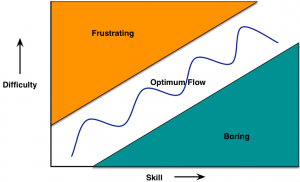As always, I like to participate in my Internet Time Alliance colleague Jane Hart’s Top 10 Tools for Learning survey. However, in reviewing last year’s list, things haven’t changed much. Still, it’s worth getting out there. So there’re my selections for 2021 top 10 tools for learning.
One of the major things I do is write: book, blog posts, articles, and more. So the first two tools I use are for writing:
1. Word. Yes, not totally pleased about the provider, but I have yet to find a tool with better industrial strength outlining. And, well, I’ve been using it since around 1989, so…there’s some familiarity…
2. WordPress. Of course, that’s how I’m writing here. I also use it for writing for the HPT Treasures blog (I post once a month, third Friday. Also I can occasionally use it for managing other sites (e.g. IBSTPI).
Another way I get my mind around new understandings is by representing information structure. So:
3. OmniGraffle. While this is Apple only, and dear, it so far is the best tool I’ve found to make diagrams. It’s got more capability than I need, but it also works the way I think, so…all told it’s still the winner.
4. OmniOutliner. Outlining is another way I think. While for writing it can be in Word, for other things: checklists, presentations, etc, it helps to have a dedicated tool. Again, Apple only, dear, and overkill, but their cheaper version doesn’t include columns, and that can be helpful!
I also do a fair bit of presentations: keynotes, webinars, and more. While I’m often forced to end up using Powerpoint…
5. Keynote. My native presentation tool. (yes, I’m an Apple person, what can I say?). It’s just cleaner for me than alternatives.
From there, we get to social tools:
6. Twitter has been a long-standing tool. Tracking other folks, participating in dialogs, and even asking questions, Twitter’s an ongoing contributor to my learning.
7. LinkedIn is where I professionally socialize, and it’s becoming more prominent in my interactions. People reach out to me there, and I also track some folks, and there are occasionally interesting discussions.
8. Zoom has, well, zoomed up to the top of my interaction tool suite. I’ve used it for chats, meetings, and webinars.
Then, of course, there’s searching for answers.
9. DuckDuckGo. I’ve switched to use this as my search engine, as it’s less-tracking, and provides good results.
10. Safari is still my browser of choice. I’ve experimented with Brave, but it hadn’t synched bookmarks across my devices. Now it does, but it’s hard to switch again.
So that’s my 2021 top 10 learning tools list. (Not really in any order, but I’ve numbered anyway. ;) It’s a personal list, since I’m not formally in education nor part of a workplace. I’ve been using Teams more, but I still find it has silly limitations, so my preference is Slack.





